When you chat to your child, you’re helping them improve their communication skills in lots of different ways. By listening to you and copying the sounds you’re making, they’re able to improve the way they talk. And hearing you say new words widens their vocabulary. It also allows them to practise having a conversation – including being able to understand what another person is trying to say and learning to respond in a suitable way.
Tips for chatting with your child
Here are some tips for making the most out of your time chatting together. There’s no need to set aside special time to chat, you can do it while you’re going about your daily routine – when you’re on the bus, walking to nursery, getting dressed – whenever!
Tip #1: Put yourself on their level
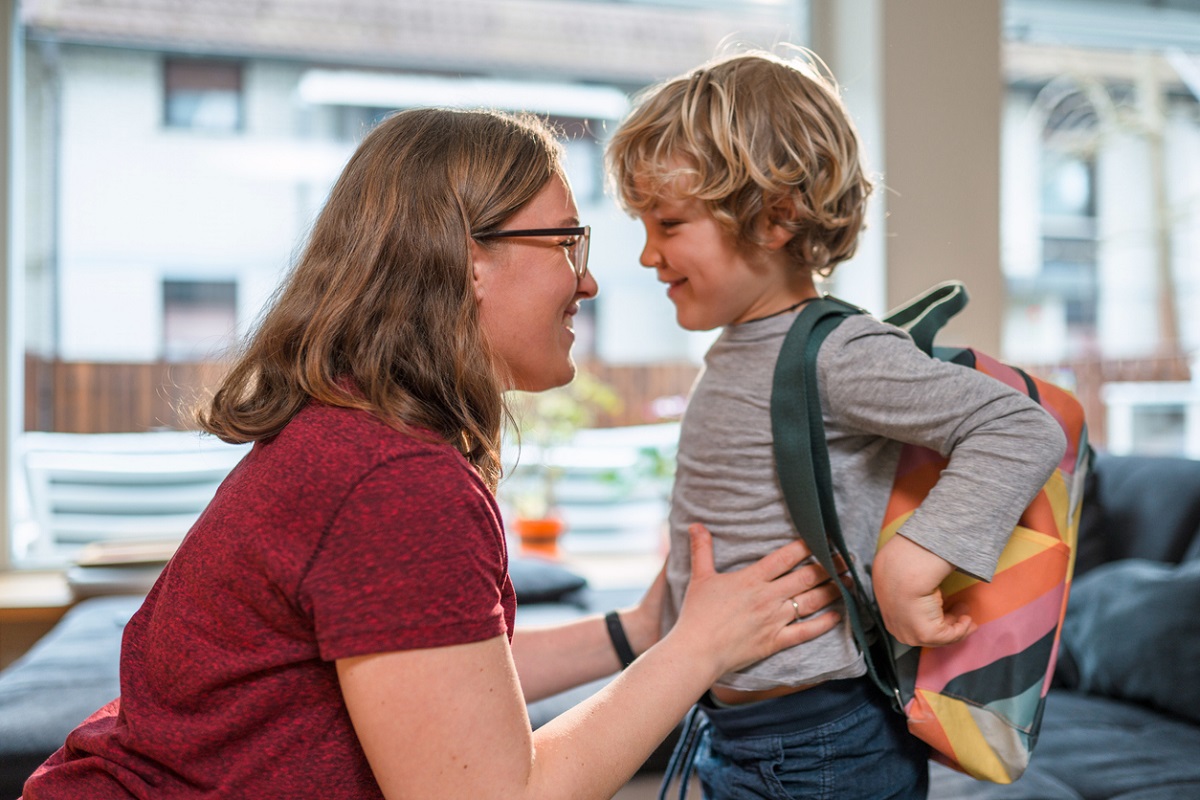
When you’re talking to your child, try and make sure you’re at eye level with them. This could either be by lifting or raising them up (for example you could stand your kids on the stairs when you’re putting their coats and hats on and getting ready for the day) or by getting down to theirs by sitting or kneeling. This is especially helpful if you’re trying to address their behaviour or tackle an awkward topic, but is a great thing to do when you’re chatting and playing too.
This video from Words Up shows why it’s great to be face to face with your child and can even make your daily routine more fun.
Tip #2: Talk about what they're doing
This is a great way of showing an interest in the things your child likes and encouraging them to chat about them. For example, if they’re making a tower with bricks, talk to them about that: ‘That’s a tall tower! I wonder who lives there.’ If they’re playing a game, comment on what they’re doing and wait for them to respond. By responding to what your child says and does, you’ll help them start to link words and sentences with meaning.
Tip #3: Let your child take the lead
Notice what your child takes an interest in, and start a wee conversation with them about that. For example, if you know they love to see the neighbour’s cat or to play with toy cars, these are good places to start. Use simple sentences and make your voice sound interesting by using a sing-song tone and lots of facial expression.
Tip #4: Make sure you have your child’s attention when you’re talking to them
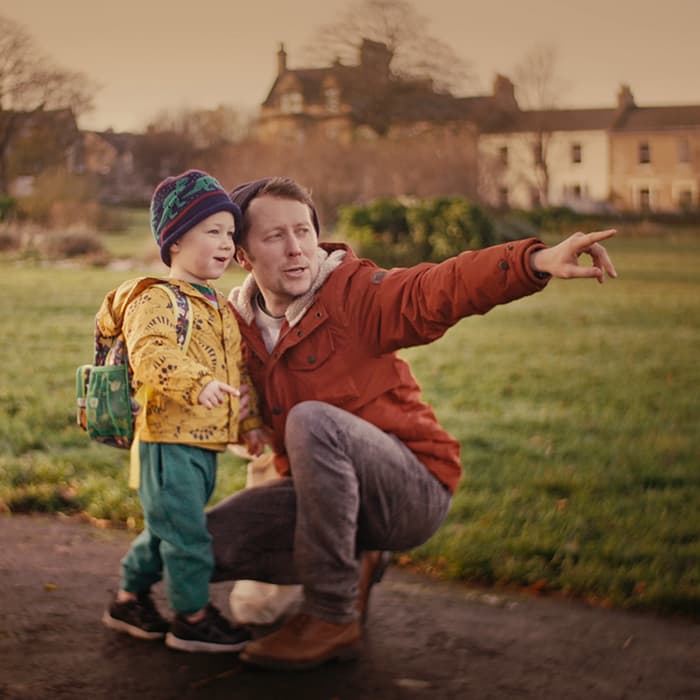
As you’ve probably noticed, children are easily distracted! So when you talk to them, call their name to ensure they’re listening and always check they’ve understood what you’ve said. It can really help if you crouch down to their level or lift them up so you can make eye contact. And it’s also best to turn off the television and any other screens and devices to reduce distractions
Tip #5: Listen attentively
Show your child you’re listening to what they say and understanding them by responding to them and then retaining the information for later. This will keep you both actively engaged in the conversation. If you later remind them of something they said, this will make them feel more confident about their communication skills.
Tip #6: Repeat repeat repeat
Young children often need lots of repetition before things sink in. So for example if your child is looking at a bus then say lots about the bus, describing what it looks like, talking about how it moves and saying the word ‘bus’ over and over again.
Tip #7: Give them time
When you’re chatting with your child, make sure you give them time to process and respond to what you’ve said. Try to resist the temptation to answer for them if they haven’t responded quickly.
This video from Words Up shows how pausing and slowing down gives children time to respond and express themselves.
Tip #8: Be careful with questions
Try not to overload your wee one with questions. In fact it may help to make comments rather than ask questions, so they don’t feel like they’re being tested. Silly comments are a great way to engage children and prompt a response.
This video from Words Up shows how being careful not to ask too many questions helps children develop their language.
Tip #9: Talk about what you’re doing as you go about your daily routine
Whether you’re at home or out and about, keep a running commentary going. Try to keep your language simple by shortening your sentences and emphasising the key words. This will help your child attach words to objects and actions.
Tip #10: Demonstrate don't correct
If they make a mistake, try to repeat the correct word rather than telling them they’ve said the word wrong. For example, if your child says: ‘tat’ you could reply, ‘Yes, it’s a CAT’. If your child gets stuck on longer words, you can help them by saying them together slowly.
Tip #11: Expand on words
When your child says something, try to think of ways you can build on what they’ve said. For example, if they say ‘car’, you could respond by saying, ‘You’re right! That’s a big red car.’ By copying what they say and adding a little bit more, you can help your child learn more words. This video from Words Up explains how.
Tip #12: Talk about what has happened in their day
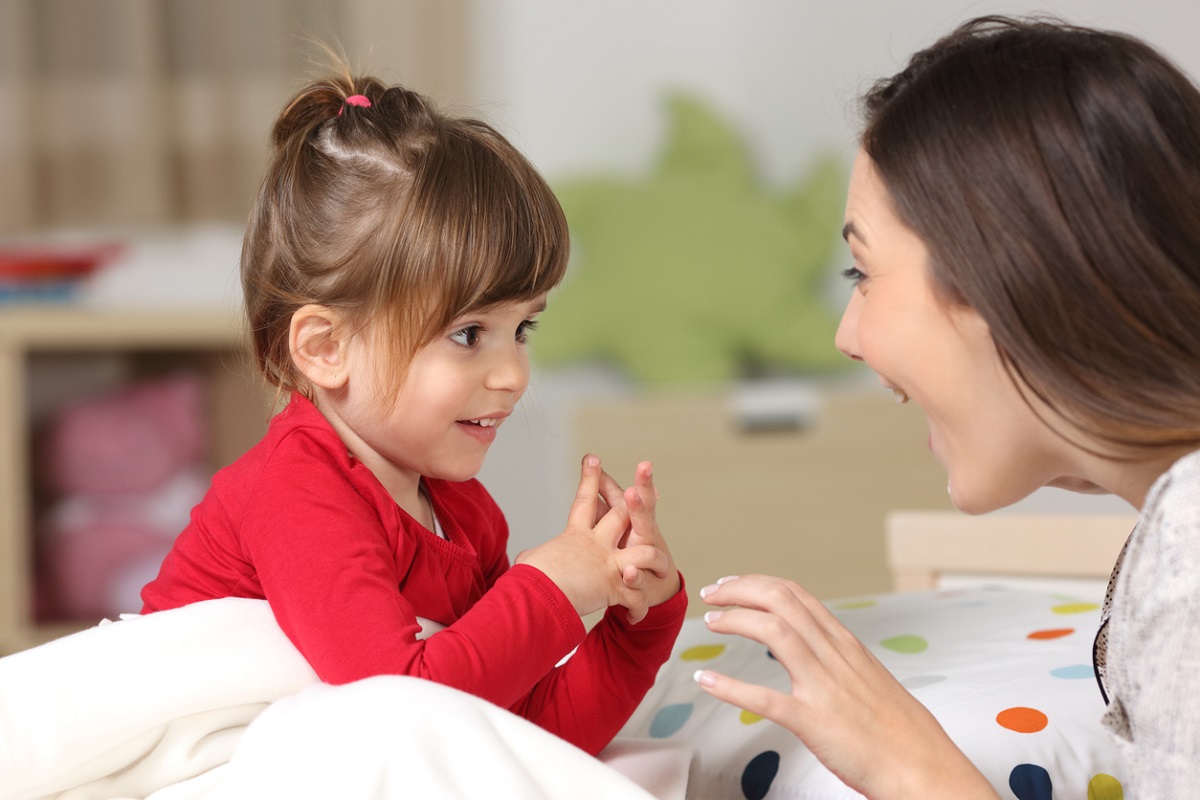
This could be on the way home from nursery, after dinner or even when they’re in the bath! Talking about things that have happened that day will help their memory skills. It’ll also help them to talk about things they can’t see and things that happened in the past – these are important skills for learning in school. You can find out more about how talking about the past is a great way to help children’s language skills develop on the CBeebies Parenting website.
Tip #13: Help them understand new concepts
It can really help your child understand more about the world if you talk about opposites (up and down; big and little) and how different things compare to each other (big, bigger, biggest; small, smaller, smallest). Again, if you can relate this to something they’re interested in this will help – next door’s cat is small but a tiger is big. A car is fast and a snail is slow. This teddy is big, but this one is bigger. Which toy is the biggest?
Tip #14: Build on your child's vocabulary
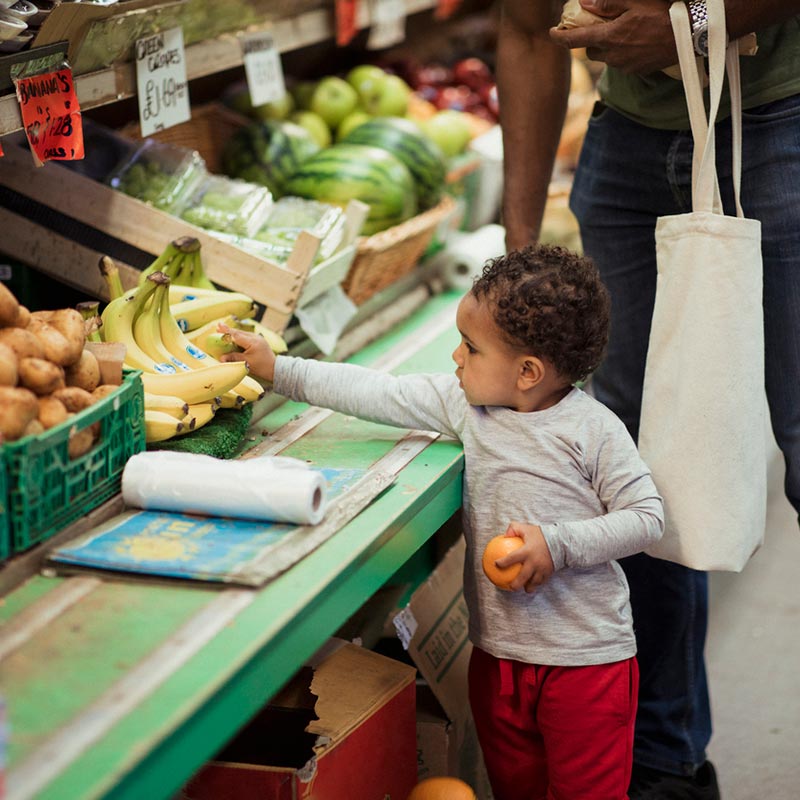
Anything can provide an opportunity to learn new words. For example, if you’re standing at the bus stop you could talk about the adverts in the bus shelter. In the supermarket you could look at the fruit and vegetables together, or draw up a shopping list before you go and explore this as you go round the shop.
While you're chatting, try not to overload them with too many questions and give them time to think before they reply. Then you could explain what any new words mean, and use them in context so they understand how to use them.
Tip #15: Explore family photos together
This is a nice way of passing time on the bus or while you’re waiting for an appointment. Look at some family pictures on your phone and ask your child to explain what’s happening. Maybe it’s someone’s birthday, or they’re with a family pet. Give them time to respond, then prompt them gently if they don’t know the words.
Tip #16: Aim for some quiet time
If you can, switch off or remove any distractions so you and your wee one can focus on each other. This video from Words Up explains why quiet time is so great for both of you.
Tip #17: Don’t worry if they get their words mixed up
Learning to talk is complex and sometimes children are so determined to get their meaning across they’ll use any words or phrases they can – which means sometimes they’ll get words mixed up. This video from CBeebies Parenting explains why. If this happens, you can help them untangle their sentences by repeating back to them the correct words.
Tip #18: Try and limit screen time
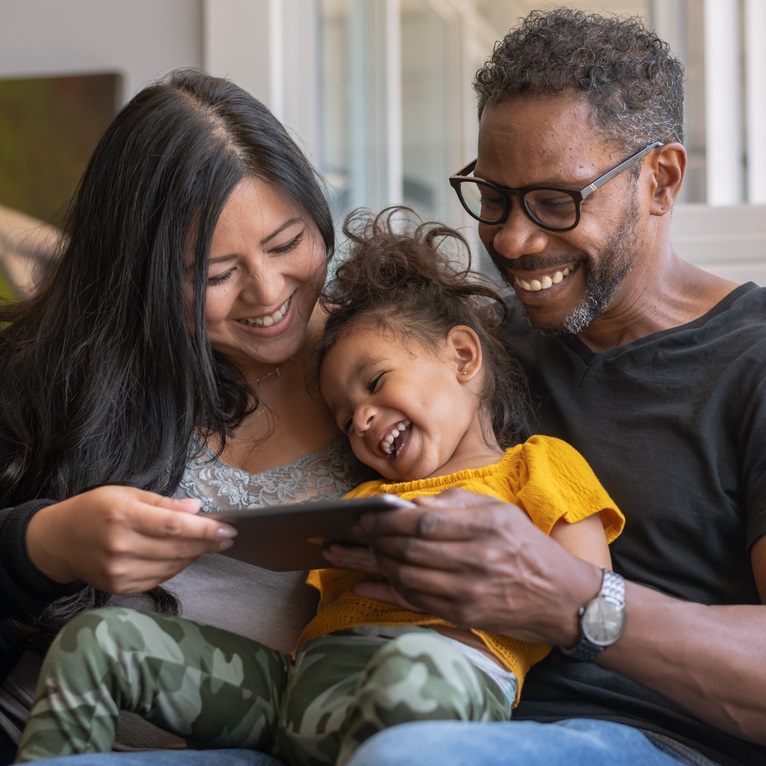
Although kids can learn a lot from watching videos and playing games, time spent on screen is all one way – the screen is talking to your child, but your child isn't talking back, and if they do, the screen isn’t listening. So while screen time can have many benefits, it doesn’t really help children develop the skills they need to chat and make friends. Watching together and chatting about what you are watching can be a good way to enjoy screen time together – our guide to screen time has more tips to help.
Tip #19: Put your phone away
We all have busy lives and need to stay in touch with friends and family, keep on top of emails and life admin or check in on social media. But research shows that being on our phones makes us less responsive to our children, which can make it harder for them to learn how to communicate and socialise as they grow up. So when you’re chatting or playing with your child, try to put away the phone for a bit and give them your full attention.
It’s also worth remembering that if your child sees you spend lots of time on your phone, they’ll want to do the same thing. So it’s a good idea to model the kind of behaviour you’d like to see from them as they grow up – like putting your phone away at mealtimes and putting it down to listen when they’re talking to you.
 Activities & Play
Activities & Play Behaviour
Behaviour Childcare
Childcare Development & Growing Up
Development & Growing Up Family, Friends & Relationships
Family, Friends & Relationships Feeding Your Baby
Feeding Your Baby Food & Eating
Food & Eating Health & Safety
Health & Safety Mental Health & Wellbeing
Mental Health & Wellbeing Money & Work
Money & Work Online Behaviour & Safety
Online Behaviour & Safety Pregnancy & First Days
Pregnancy & First Days School & Education
School & Education Sleep
Sleep

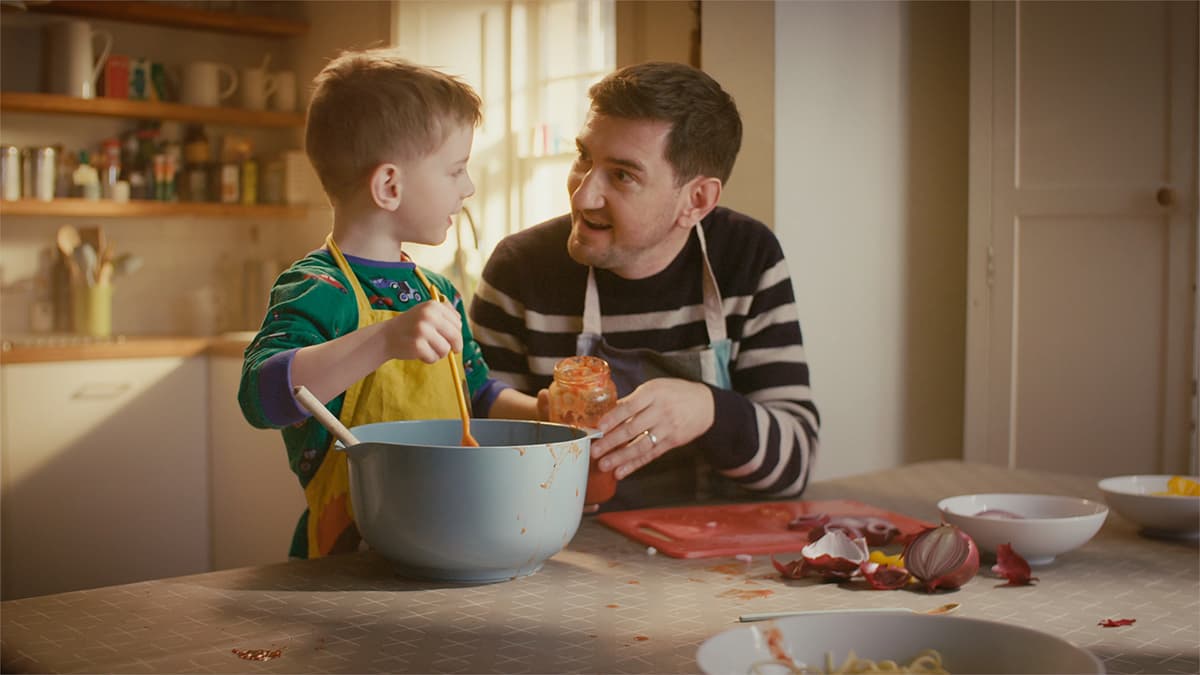
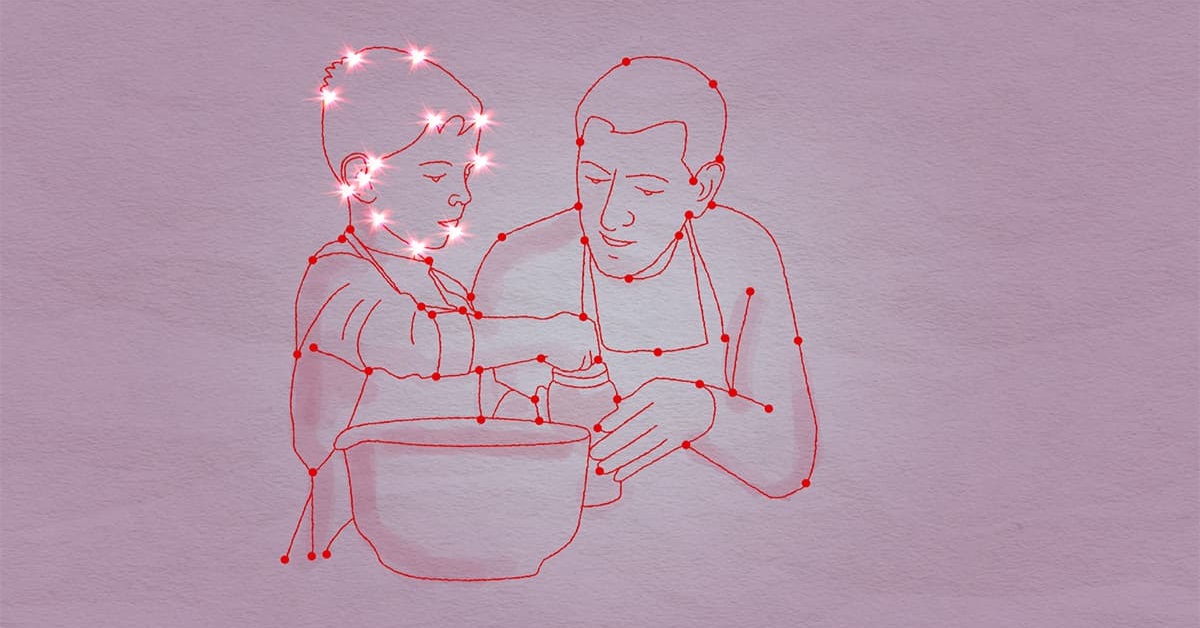
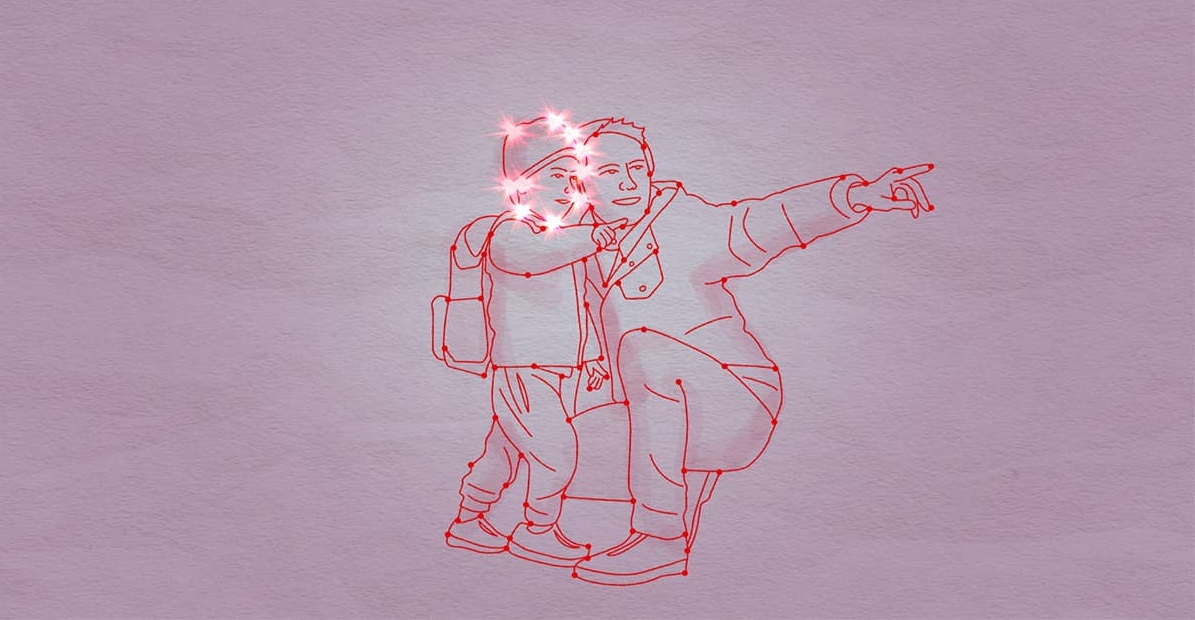

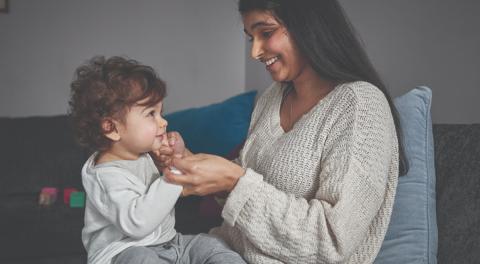

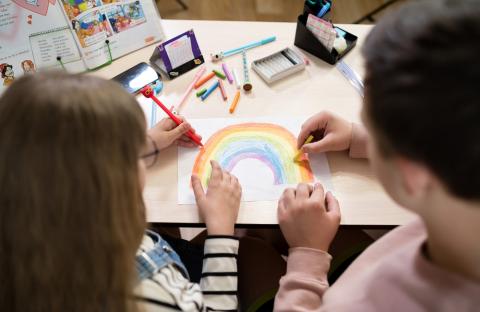
 Family, Friends & Relationships
Family, Friends & Relationships
 Mental Health & Wellbeing
Mental Health & Wellbeing